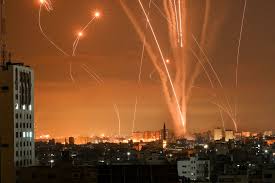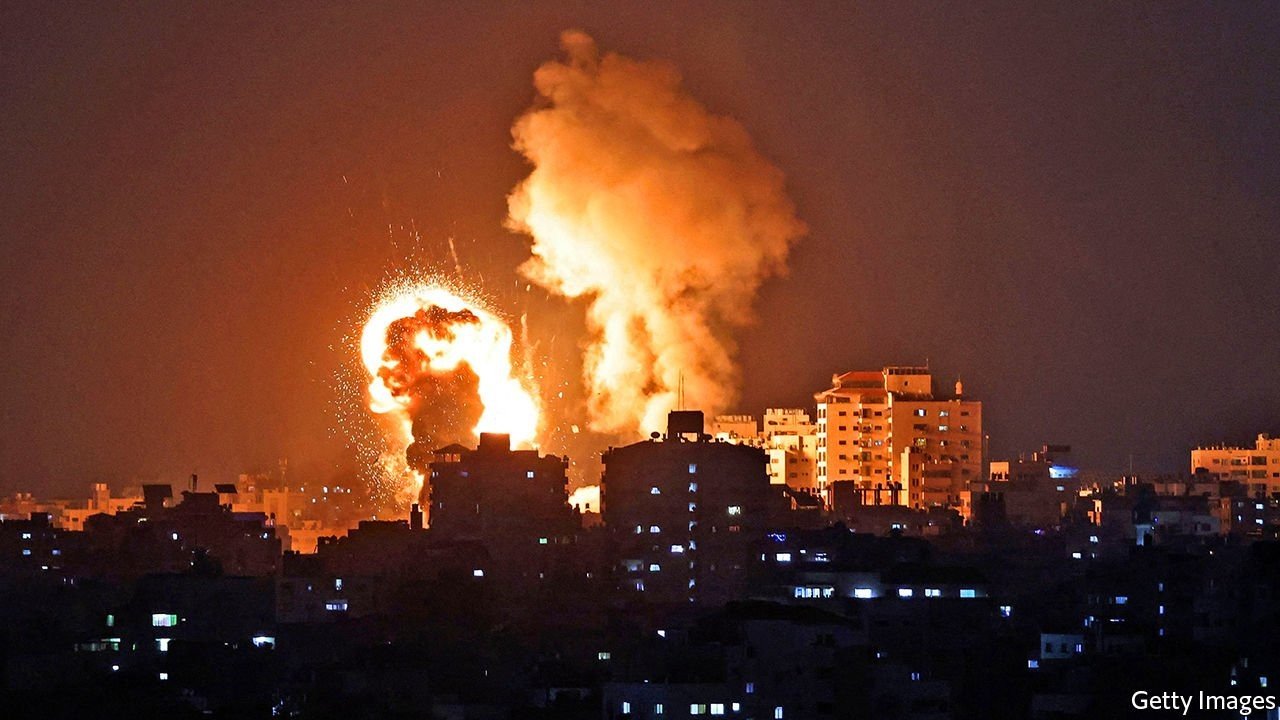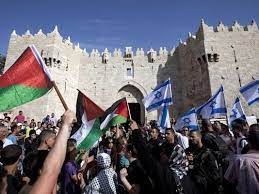Several decades and a generation have passed on in the hope that the Palestinians and Israelis will live side by side in peace . Alas, peace remains elusive as the most recent 11 days war will once again testify.  Human and civilian catastrophe is immense. Triggers are so easy to find given the prevailing hostility and mistrust on both sides as Palestine remains occupied and Israel fearful of extremist surprises. Vulnerabilities are common and lurking danger of provocation ever so present. Some have nothing to lose the others have much more to lose. Hence, the question remains, despite a divided and often muted international community especially big powers, whether a durable ceasefire and eventual dialogue and peace can be achieved. It was only after the ceasefire brokered by a cautious yet anxious Biden Administration and regional players like Qatar and Egypt and the UNGA debate that the UNSC was able to issue a statement in its 4th attempt. It puts a big question mark once again on relevance and efficacy of the international governance structure stunted by their archaic veto wielding arbitrary mechanisms.
Human and civilian catastrophe is immense. Triggers are so easy to find given the prevailing hostility and mistrust on both sides as Palestine remains occupied and Israel fearful of extremist surprises. Vulnerabilities are common and lurking danger of provocation ever so present. Some have nothing to lose the others have much more to lose. Hence, the question remains, despite a divided and often muted international community especially big powers, whether a durable ceasefire and eventual dialogue and peace can be achieved. It was only after the ceasefire brokered by a cautious yet anxious Biden Administration and regional players like Qatar and Egypt and the UNGA debate that the UNSC was able to issue a statement in its 4th attempt. It puts a big question mark once again on relevance and efficacy of the international governance structure stunted by their archaic veto wielding arbitrary mechanisms.

India is currently a non-permanent member at the UNSC with a legitimate right and aspiration to be able to sit on the high table in an expanded UNSC post reforms that are heading nowhere like the infructuous debates in a “Talking Shop”. But this time the debate in India on her statement at the UNSC regarding the Israel -Hamas conflict became a point of friction among the Israelis as well as Palestinians who did not seem fully pleased with her stand. The division was so very clear in the social media with hashtags #IloveIsrael and #IlovePalestine competing for more hits. Can the foreign policy be crafted under media pressure while scrutiny is fine? Can taking the Pole position serve the cause of peace which is indeed the core concern of the international community and the affected people alike. In a complex and complicated issue as this one the historical context and consistent as well as principled and nuanced stance contributing to ceasefire and potential for a durable peace, is far more desirable than indulging in accusations and counter accusations which the parties to the conflict and their benefactors are already indulging in. India has excellent relations with both Tel Aviv and Ramallah. It also supports the just Palestinian cause and the Two State solution.

India’s statement and efforts in my view have been well crafted by condemning indiscriminate violence, maintenance of status quo, special status of Jerusalem and quest for direct peace talks with the calls for immediate ceasefire. This can entail an indicative roadmap for a negotiated, long-awaited Two State solution provided the two sides and the Quartet and other interlocutors are willing and wanting to reach a comprehensive solution by addressing all concerns. A head-on and hands-on approach is needed. Initially an unwilling Biden Administration, despite its preference and unconditional support for the Jewish state, has already moved from ensuring sustained calm to cease-fire to need for a 2State Solution for which time is ripe. There will be many roadblocks but then we need to bite the bullet and ensure the vision of the two States living side by side within secure and recognized borders >or else ….
(Ambassador Anil Trigunayat, is a former Indian Ambassador to Jordan, Libya and Malta and a lead commentator on foreign policy issues. This article was originally compiled and curated by Maham Abbasi for The India Observer (TIO). This is a reprint. Opinion expressed is that of the author and does not represent the views of IIRF.)
 Human and civilian catastrophe is immense. Triggers are so easy to find given the prevailing hostility and mistrust on both sides as Palestine remains occupied and Israel fearful of extremist surprises. Vulnerabilities are common and lurking danger of provocation ever so present. Some have nothing to lose the others have much more to lose. Hence, the question remains, despite a divided and often muted international community especially big powers, whether a durable ceasefire and eventual dialogue and peace can be achieved. It was only after the ceasefire brokered by a cautious yet anxious Biden Administration and regional players like Qatar and Egypt and the UNGA debate that the UNSC was able to issue a statement in its 4th attempt. It puts a big question mark once again on relevance and efficacy of the international governance structure stunted by their archaic veto wielding arbitrary mechanisms.
Human and civilian catastrophe is immense. Triggers are so easy to find given the prevailing hostility and mistrust on both sides as Palestine remains occupied and Israel fearful of extremist surprises. Vulnerabilities are common and lurking danger of provocation ever so present. Some have nothing to lose the others have much more to lose. Hence, the question remains, despite a divided and often muted international community especially big powers, whether a durable ceasefire and eventual dialogue and peace can be achieved. It was only after the ceasefire brokered by a cautious yet anxious Biden Administration and regional players like Qatar and Egypt and the UNGA debate that the UNSC was able to issue a statement in its 4th attempt. It puts a big question mark once again on relevance and efficacy of the international governance structure stunted by their archaic veto wielding arbitrary mechanisms.









